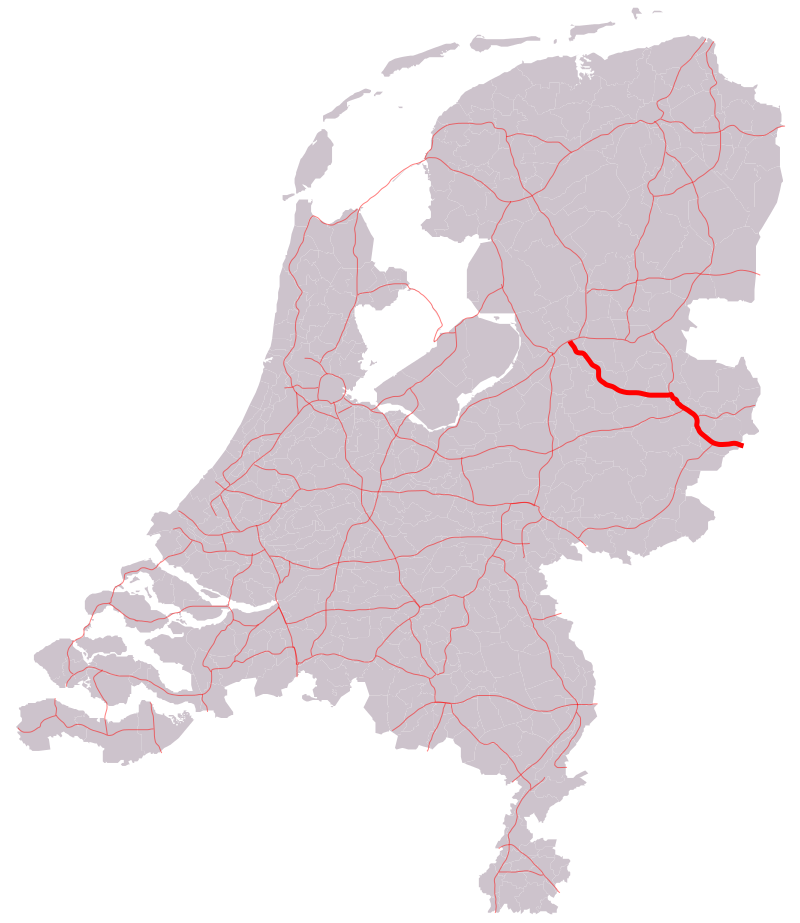Rijkswaterstaat – the water management agency of the Netherlands, under the Ministry of Infrastructure and Water Management – is considering the construction of a large-scale solar plant along Rijksweg 35 highway, in the northeastern Netherlands.
The agency is currently working with the municipalities of Wierden, Almelo, Borne, Hengelo, Enschede, the government of Overijssel province, and local grid operator Enexis to assess the feasibility of the project.
“The parties involved, in close collaboration with residents and businesses, will investigate how roadsides along the 35-kilometer along the A35 can be used for the generation of solar energy,” the Rijkswaterstaat said, adding that the plant should be deployed on property owned by the national government and the municipalities.
A spatial analysis project was launched in 2018 to determine which portions of land could be used for the solar facility, based on environmental and technical parameters. The project, which is part of a government program to build renewable energy pilot projects on state land, is the third project of its kind in the Netherlands. Anglo-Dutch oil giant Shell plans to install 48 MW of solar generation capacity near Rijksweg 59, a Dutch highway that spans the provinces of Zeeland, South Holland and North Brabant.
Rijkswaterstaat also plans to build another solar park along the A37 in Drenthe province. The project will involve the installation of PV modules along either side of a 40-kilometer stretch of highway, in addition to solar panels on the median strip between the two lanes.
The potential for Dutch highways to host solar has been highlighted since October 2017, when Dutch construction firm Heijmans announced plans to install noise barrier-integrated bifacial solar modules along several major roads.
The Dutch authorities are struggling to identify new surfaces on which to deploy large-scale PV plants, due to the scarcity of usable land. In recent years, research institutes and private companies across the densely populated country have tried to prove the feasibility of solar projects on surfaces that do not damage agricultural land, including rooftops, road noise barriers, onshore and offshore water surfaces, as well as bike lanes.
This content is protected by copyright and may not be reused. If you want to cooperate with us and would like to reuse some of our content, please contact: editors@pv-magazine.com.




2 comments
By submitting this form you agree to pv magazine using your data for the purposes of publishing your comment.
Your personal data will only be disclosed or otherwise transmitted to third parties for the purposes of spam filtering or if this is necessary for technical maintenance of the website. Any other transfer to third parties will not take place unless this is justified on the basis of applicable data protection regulations or if pv magazine is legally obliged to do so.
You may revoke this consent at any time with effect for the future, in which case your personal data will be deleted immediately. Otherwise, your data will be deleted if pv magazine has processed your request or the purpose of data storage is fulfilled.
Further information on data privacy can be found in our Data Protection Policy.